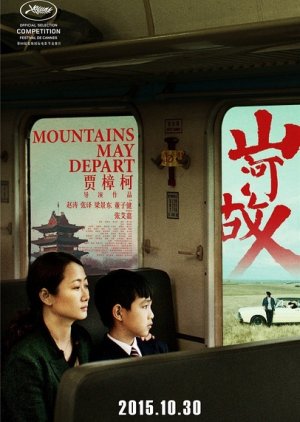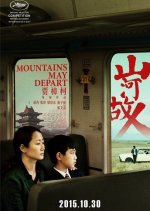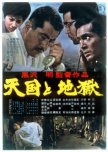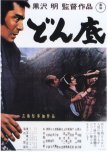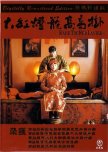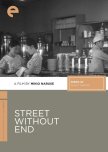The story begins in the 1990s and follows Tao and Dong, a young couple in love. Tao later leaves Dao to marry a wealthy mine owner. On his deathbed, Dong meets Tao again; she is divorced, and her son is exiled to Australia. The story jumps to Tao’s son in Australia in the year 2025. The only word in Chinese he still remembers is his mother’s name. (Source: 2015 Cannes Film Festival) Edit Translation
- English
- magyar / magyar nyelv
- dansk
- Norsk
- Native Title: 山河故人
- Also Known As: Shan he gu ren ,
- Screenwriter & Director: Jia Zhang Ke
- Genres: Drama
Cast & Credits
- Zhang Yi Main Role
- Sylvia ChangMia [Chinese teacher]Support Role
- Rong Zi ShanZhang Dao Le [Child]Support Role
- Dong Zi JianZhang Dao Le /"Dollar"Support Role
- Liu LuXiao Lu [Liang Zi's wife]Support Role
Reviews

This review may contain spoilers
"Nobody can be with you all through life"
Director Jia Zhang Ke confronted the topic of change loosely through the life of one woman in three different decades and through the lens of three different aspect ratios of filming. The story observed how the changes that globalization, capitalism and the diaspora of people going west affected the characters involved. Beginning with the first segment's love triangle, the characters continued to become more disconnected to each other. As some characters moved away from their homeland there also became a disconnect between parent and child culturally and linguistically. Change is inevitable. Mountains may depart, but can relationships be sustained?The film begins in 1999 with an energetic group dance set to the Pet Shop Boys' "Go West" and then moves into the streets with traditional parades and celebrations. In their twenties, Tao is being courted by poor mine worker Lianxi and up and coming capitalist with his own car Jin Sheng. When Jin Sheng recklessly and breathlessly teaches Tao how to drive the lesson ends in an accident. Tao's excitement shows it's clear which partner she is going to choose. Ambitious capitalists are hard to resist even if they are of course going to turn out to be awful.
2014 arrives and Tao is divorced keeping custody of the dog and a gas station while Jin Sheng has custody of their son, Dollar. He and his new wife live an extravagant lifestyle far away from the rural mining town. When her father dies unexpectedly, she tells Jin Sheng to send their son to her for the funeral. Dollar arrives with a Hermes scarf around his neck and no knowledge of the funeral customs. Instead of putting him on a plane to return to his father they take the slow green train so that she can spend more time with him. She shares Sally Yeh's "Take Care", a song important to her, with him on her headphones in an effort to connect with her son.
2025 is set in Australia where Jin Sheng has emigrated to because he had gotten caught up in China's anti-corruption campaign and can't go home. Dollar is taking a Mandarin class taught by 60-year-old Mia as he has forgotten most of his native language. Mandarin is not the only thing he has forgotten, he barely remembers his mother. His only connection is the key she gave him hanging around his neck. He grows closer to Mia when she plays "Take Care" in class and the song stirs distant memories in Dollar. For the most part Dollar and his father are unable to talk without Google or Mia translating for them. Dollar ends up in an almost Oedipal relationship with the older teacher who encourages him to go home and see his mother.
Mountains May Depart started out with a love triangle where Tao had to choose between the traditional and the dangerous new capitalism. Materialism and excitement won out but came with a price, the loss of her marriage and her son. She relinquished her son again thinking that his father's wealth could offer him things she never could. And yet the materialism and education offered could not replace his mother's love and traditional values. While capitalism was shown as causing moral decay-the father had a coffee table ridiculously full of guns and booze in Australia-it was also used for good. When Lianxi returned dying of lung disease from working in coal mines, Tao was able to pay for his treatment when his poorer friends and relatives couldn't help. Interestingly, Australia's scenery was lush and green with brilliant blue skies compared to China's often dingy gray skies and landscapes with the exception of Tao's ubiquitous red coat. Whether this was a social commentary I couldn't say or what it meant. The view Jia gave of Fenyang was that it had not shared equally in the economic progress with much of the community at the mercy of the vacillating prices of coal.
Many questions were left unanswered. Tao and Dollar had cellphones, why didn't they keep in touch? What happened to Lianxi? We were shown none of the marriage causing the viewer to fill in the gaps. Did Dollar ever go home to reunite with his mom? Did Dollar find a way to reconcile the life he was living with his cultural heritage? And why did no one in Australia have an Australian accent?
Random thoughts about the production values: Aside from Zhao Tao's performance the rest of the cast could not measure up, which became readily apparent in the 3rd act when she was almost completely absent from the screen. The music was used to good effect including the pop songs repeated. Aside from the repeated music, Jia liked to show repeated items and people. At first I thought my television set was having problems and then I realized that each segment was filmed in a different aspect ratio going from small (1:33:1) to cinemascope (2:35:1) showing the change in film as well. I found it interesting that Jia included bits of random film he'd taken in 1999 in the first act. Some of the dialogue was clunky especially when father and son were talking about the different meanings of "freedom."
The film was slow and began to feel overly long, especially without Tao's presence during the final third of the film. Whether globalization leads to meaninglessness and isolation or increased understanding remains to be seen. Notwithstanding Jia's thematic intention, what I got out of the film is how important communication and connection is, especially for family, regardless of where everyone is on the globe. Despite political affiliation and economic status, age gaps occur and only understanding and effort can bridge them. If not for meaningful relationships, what does one cling to when the mountains depart?
6/12/23
Was this review helpful to you?

